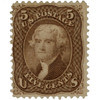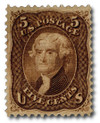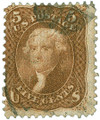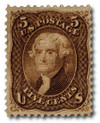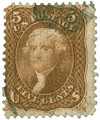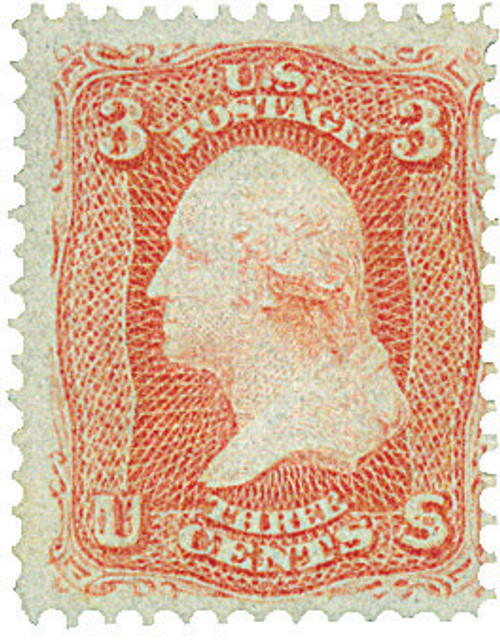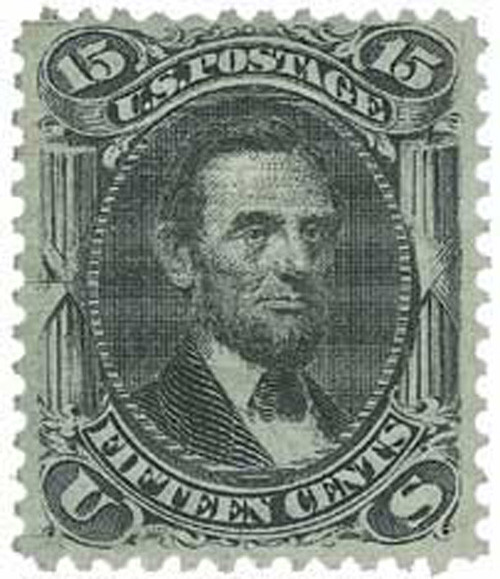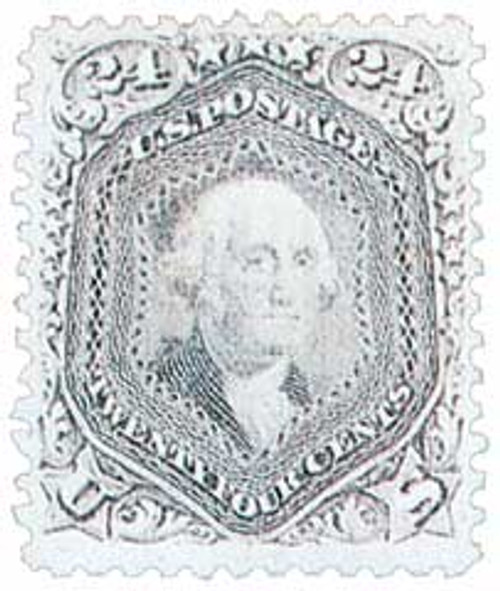
# 95 - 1867 5c Jefferson, brown
Series of 1867 5¢ Jefferson
“F” Grill
Quantity issued: 680,000 (estimate)
Printed by: National Bank Note Company
Method: Flat plate
Watermark: None
Perforation: 12
Color: Brown
Jefferson Wins Presidency
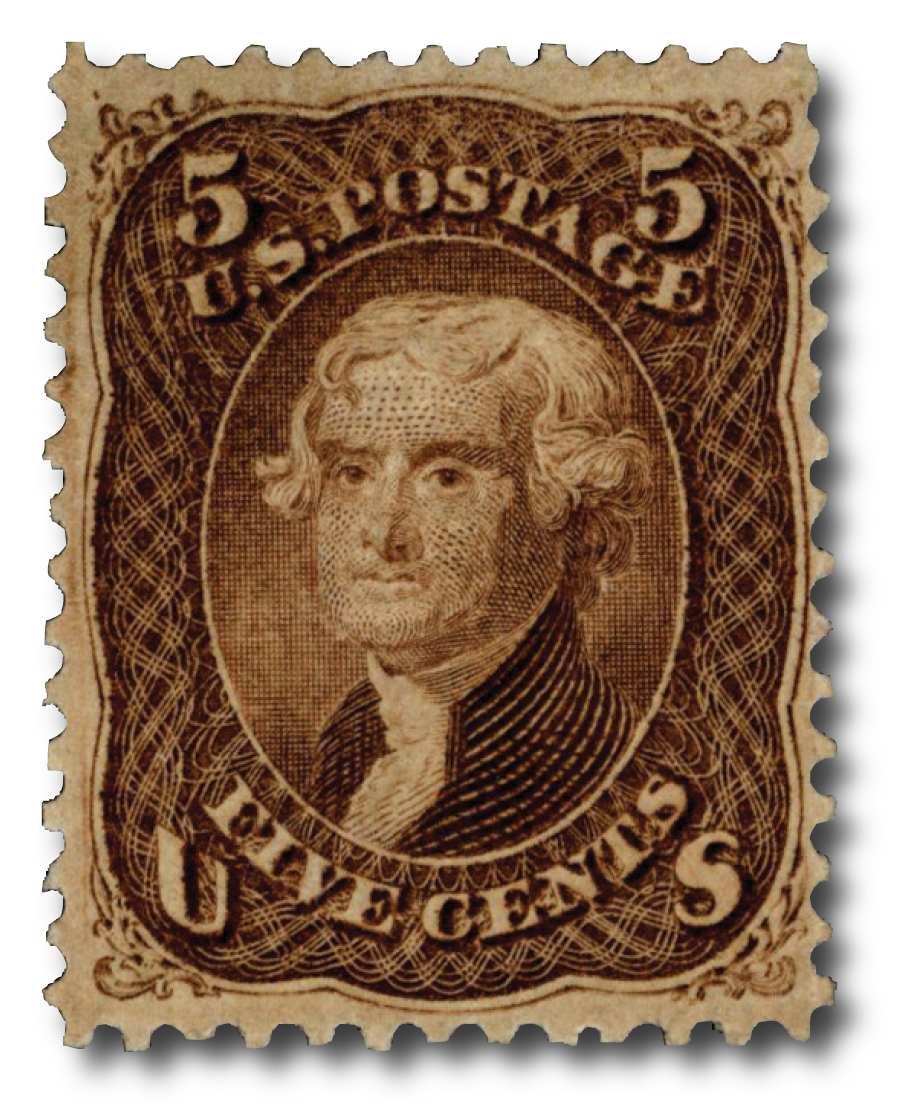
On February 17, 1801, Thomas Jefferson was elected president by the US House of Representatives following an electoral tie with Aaron Burr.
After penning the Declaration of Independence, Thomas Jefferson served in the Second Continental Congress, the Virginia House of Delegates, as governor of Virginia, and US minister to France. Upon his return to America after the war, Jefferson became America’s first secretary of state.
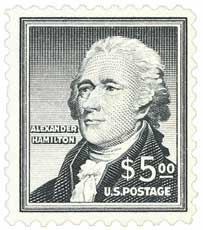
Appointed by George Washington, Jefferson disagreed sharply with Secretary of the Treasury Alexander Hamilton’s national fiscal policy. The primary debate was over funding the Revolutionary War debt. Hamilton believed the debt should be divided equally among the states. Jefferson, a firm advocate of states’ rights, believed that each state should be responsible for the debt it alone had incurred (Virginia had not accumulated a significant amount of debt during the war). Their disagreement led to further divisions in the new government, with Hamilton’s Federalists on one side and Jefferson’s Democratic-Republican Party on the other.
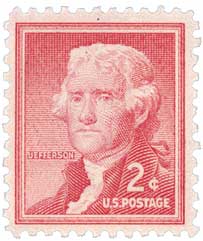
As secretary of state, Jefferson supported France in its war with England. In 1793, he returned to Monticello and began working with James Madison to undermine Hamilton’s influence. Jefferson lost the 1796 presidential election to the Federalist candidate, John Adams. However, he had enough electoral votes to be elected Vice President.
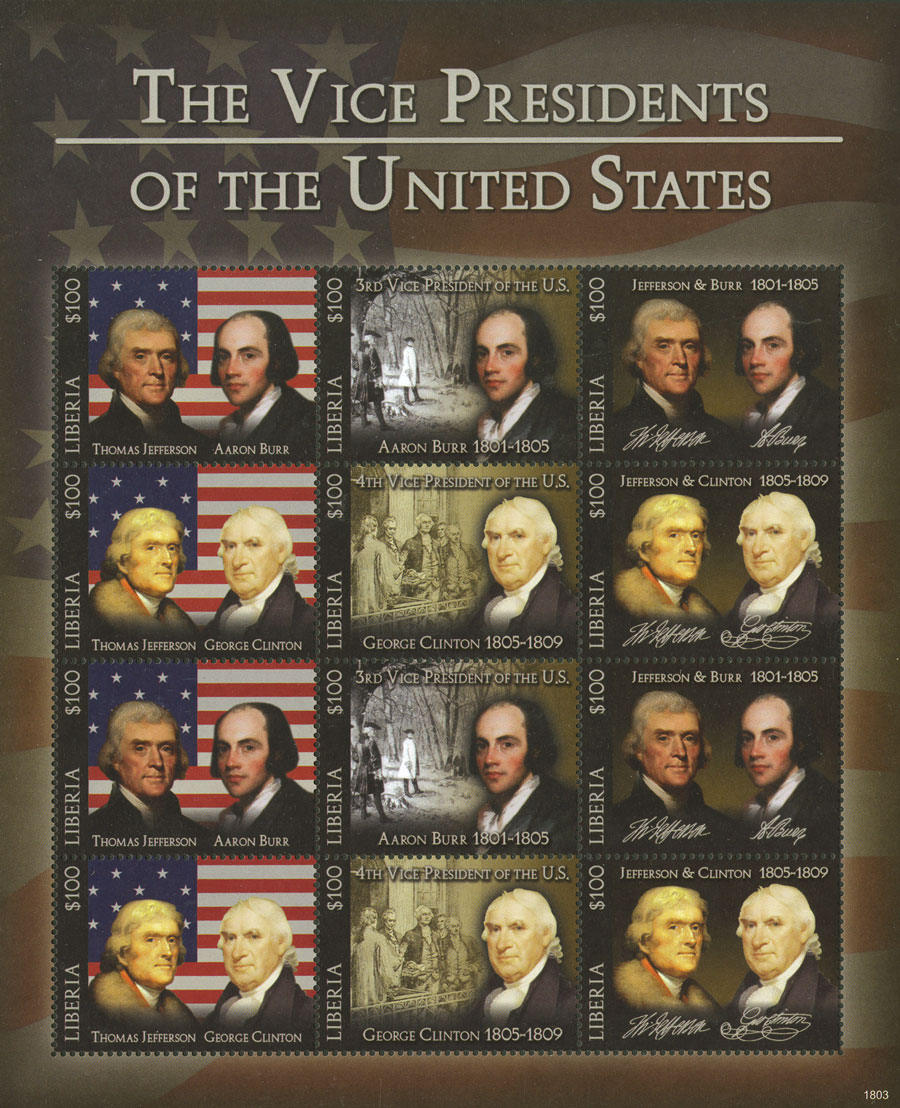
Four years later, the Federalists lost the presidency and control of Congress. Jefferson defeated John Adams and received enough electoral votes to tie with Aaron Burr. The tie for first place in the election was to be resolved by the House of Representatives, which was controlled by the Federalists. In a lengthy debate, Hamilton convinced his colleagues that Jefferson was “by far not so dangerous a man” as Burr. After deadlocking in 35 ballots, the House of Representatives chose Jefferson by a margin of ten to four on February 17, 1801.
Though they had been running mates in the election, tensions were high between Jefferson and Burr during their time in office. Jefferson ultimately replaced Burr in the 1804 election. The 1800 election was one of the catalysts of Burr’s fatal duel with Alexander Hamilton.
Series of 1867 5¢ Jefferson
“F” Grill
Quantity issued: 680,000 (estimate)
Printed by: National Bank Note Company
Method: Flat plate
Watermark: None
Perforation: 12
Color: Brown
Jefferson Wins Presidency

On February 17, 1801, Thomas Jefferson was elected president by the US House of Representatives following an electoral tie with Aaron Burr.
After penning the Declaration of Independence, Thomas Jefferson served in the Second Continental Congress, the Virginia House of Delegates, as governor of Virginia, and US minister to France. Upon his return to America after the war, Jefferson became America’s first secretary of state.

Appointed by George Washington, Jefferson disagreed sharply with Secretary of the Treasury Alexander Hamilton’s national fiscal policy. The primary debate was over funding the Revolutionary War debt. Hamilton believed the debt should be divided equally among the states. Jefferson, a firm advocate of states’ rights, believed that each state should be responsible for the debt it alone had incurred (Virginia had not accumulated a significant amount of debt during the war). Their disagreement led to further divisions in the new government, with Hamilton’s Federalists on one side and Jefferson’s Democratic-Republican Party on the other.

As secretary of state, Jefferson supported France in its war with England. In 1793, he returned to Monticello and began working with James Madison to undermine Hamilton’s influence. Jefferson lost the 1796 presidential election to the Federalist candidate, John Adams. However, he had enough electoral votes to be elected Vice President.

Four years later, the Federalists lost the presidency and control of Congress. Jefferson defeated John Adams and received enough electoral votes to tie with Aaron Burr. The tie for first place in the election was to be resolved by the House of Representatives, which was controlled by the Federalists. In a lengthy debate, Hamilton convinced his colleagues that Jefferson was “by far not so dangerous a man” as Burr. After deadlocking in 35 ballots, the House of Representatives chose Jefferson by a margin of ten to four on February 17, 1801.
Though they had been running mates in the election, tensions were high between Jefferson and Burr during their time in office. Jefferson ultimately replaced Burr in the 1804 election. The 1800 election was one of the catalysts of Burr’s fatal duel with Alexander Hamilton.



